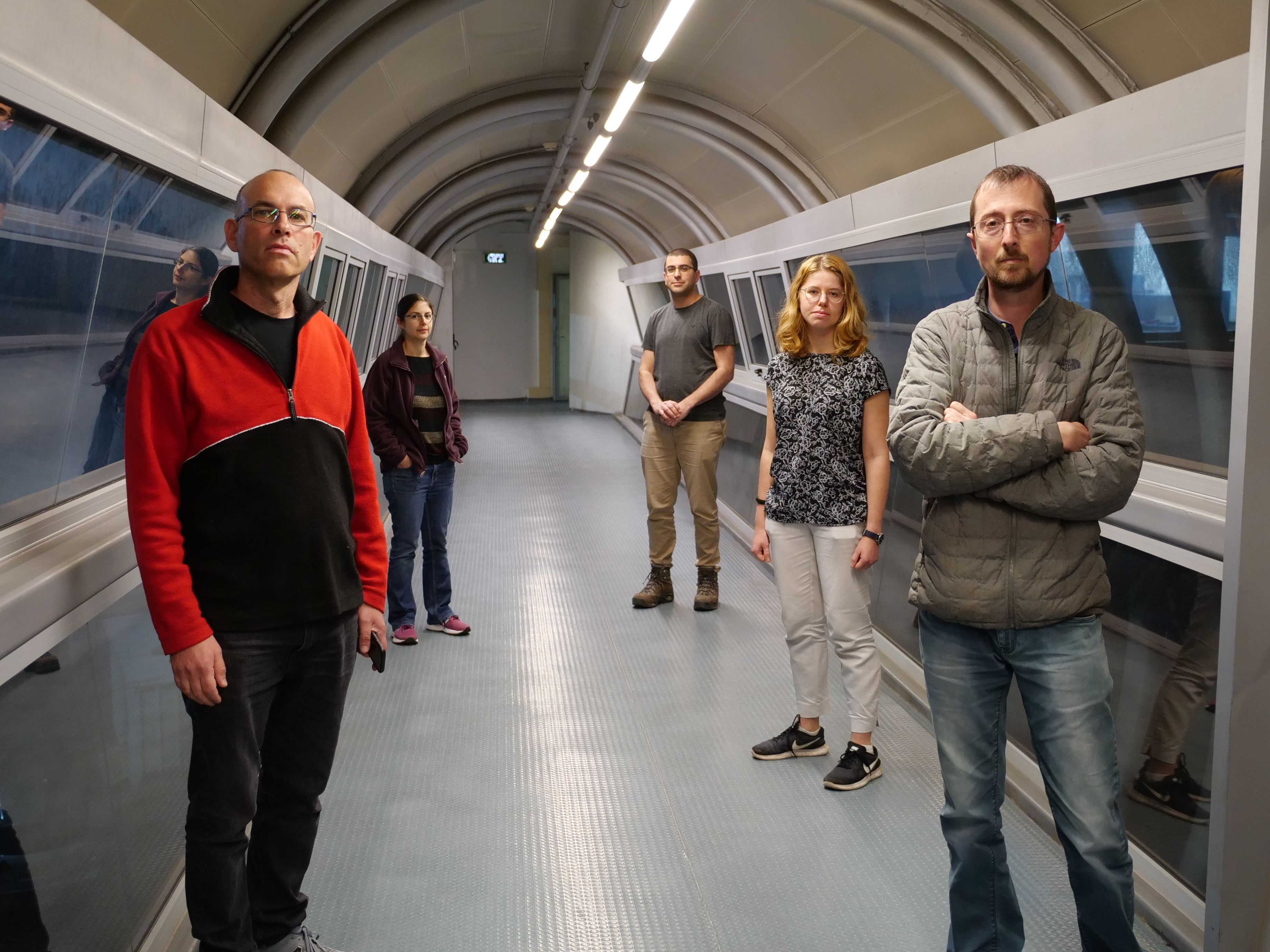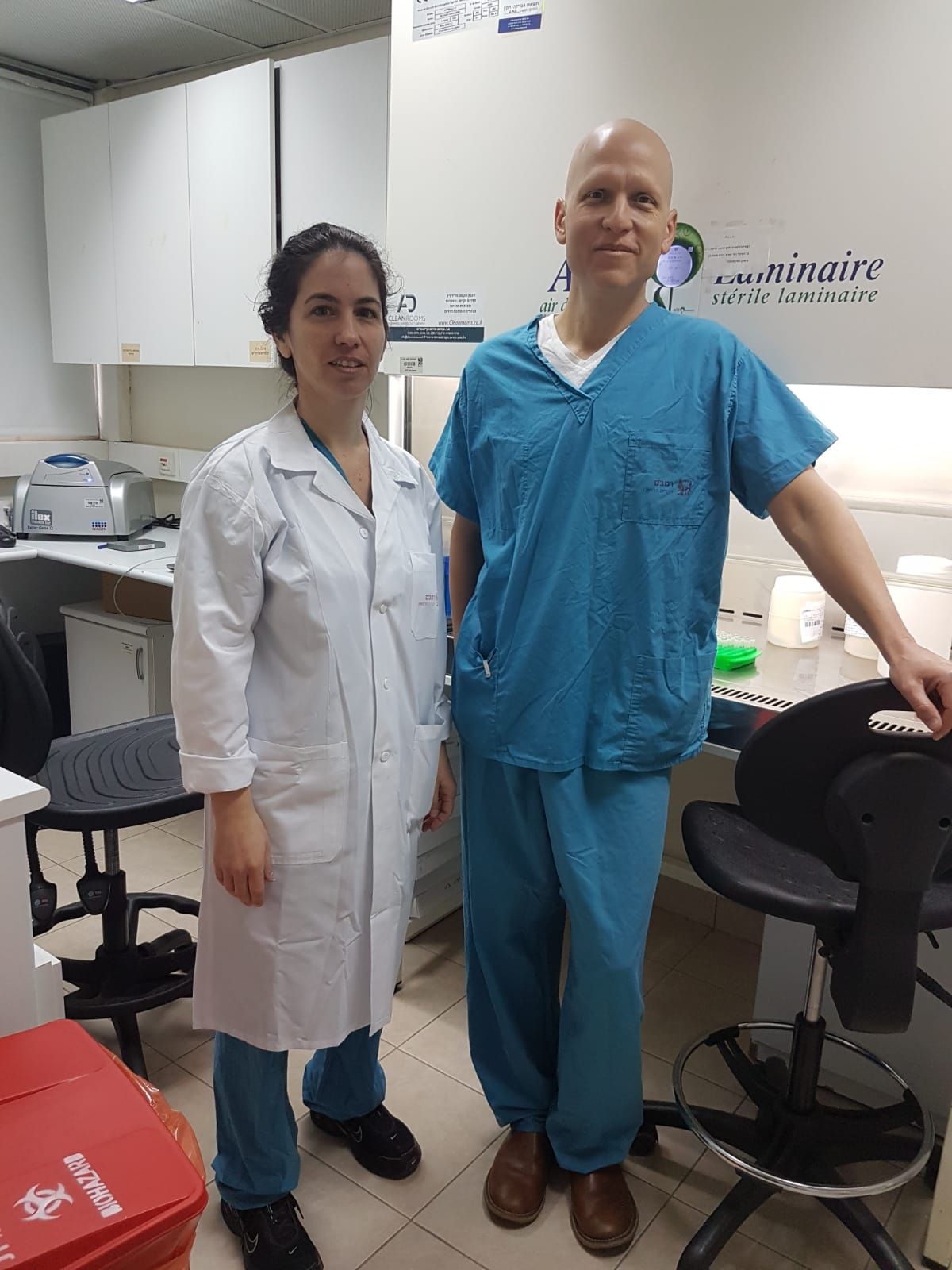
Pooling Method for Accelerated Testing of COVID-19
Technion and Rambam Health Care Campus scientists present a novel method for testing more than 60 patients simultaneously
Researchers at Technion - Israel Institute of Technology and Rambam Health Care Campus have successfully tested a method that will dramatically increase the current COVID-19 testing capacity using existing available resources. This method, known as pooling, enables simultaneous testing of dozens of samples. Its implementation has the potential to greatly accelerate the rate of testing and detection of COVID-19 infected patients in the population. The trial was completed in a matter of days thanks to the support of the Ministry of Health and the close collaboration between Technion and Rambam.
Testing for COVID-19 is currently being conducted in Israel with the focus on people with specific symptoms. The current rate of testing - about 1,200 a day – does not allow for monitoring of asymptomatic carriers in the population, which is vital to curb the epidemic.
COVID-19 is diagnosed with PCR testing, which is common for virus monitoring. This test examines the presence of a unique genetic sequence of viruses in a sample taken from the patient. The test takes several hours thus generating a bottleneck in identifying COVID-19 infected people in Israel and around the world. According to Dr. Yuval Gefen, director of the Rambam Clinical Microbiology Laboratory, “Today, we receive approximately 200 COVID-19 test samples a day, and each sample undergoes individual examination. According to the new pooling approach we have currently tested, molecular testing can be performed on a "combined sample," taken from 32 or 64 patients. This way we can significantly accelerate the testing rate. Only in those rare cases, where the joint sample is found to be positive, will we conduct an individual test for each of the specific samples.”
According to Professor Roy Kishony, head of the research group in the Faculty of Biology at Technion, “This is not a scientific breakthrough, but a demonstration of the effectivity of using the existing method and even the existing equipment to significantly increase the volume of samples tested per day. This is done by pooling multiple samples in a single test tube. Even when we conducted a joint examination of 64 samples in which only one was a positive carrier, the system identified that there was a positive sample. Although there are some logistical challenges in implementing the method, we expect that it will greatly increase the volume of samples tested per day so that we can identify the asymptomatic carriers. This approach should reduce the chance of infection and flatten the infection curve.”

Director of the Rambam Virology Lab, Dr. Moran Szwarcwort-Cohen estimates that, “implementing pooling in the final stage of the PCR test will make it easier for us to shorten the entire process and significantly increase the test rate.”
President of the Technion Professor Uri Sivan said: "This experiment conducted by Technion and Rambam researchers is complex, and under normal circumstances would take months. This is a remarkable example of the mobilization of an outstanding team in a time of crisis. The initial experiment was completed in less than four days. This achievement emphasizes the importance of the close relationship between Technion and Rambam and between medicine and engineering. Technion researchers have been enlisted in the war against the Coronavirus and this is one of the many activities currently underway at Technion to combat the spread of the disease.”
General Director of Rambam Health Care Campus Prof. Michael Halberthal said, “This collaboration between Technion and Rambam, for the benefit of all humanity, is just one example of many joint projects between the two institutions. These collaborations are designed to harness the multidisciplinary capabilities of Technion researchers for the advancement of medicine.”
The experiment was led at Technion by Dr. Idan Yelin, together with Noga Aharony, Einat Tamar, and Dina Berenbaum in Prof. Kishony's laboratory together with Amir Argoetti from Professor Yael Mandel-Gutfreund's laboratory, both labs are in the Faculty of Biology. Dr. Esti Messer, head of the Technon Biological Safety Dept, was enlisted to help set up the dedicated laboratory and accompanied the entire experiment. Prof. Kishony holds the Marilyn and Henry Taub Chair in Life Sciences. The Rambam Health Care Campus team was led by Dr. Yuval Gefen and Dr. Moran Szwarcwort-Cohen, and Prof. Michael Halberthal, Rambam General Director and CEO.
Photos
L to r: Prof. Roy Kishony, Einat Tamar, Amir Argoetti, Noga Aharony, and Dr. Idan Yelin
Dr. Yuval Gefen and Dr. Moran Szwarcwort-Cohen
More pics at Facebook Israel Diplo
Credit: Technion Spokesperson's Office and Rambam Spokesperson's Office








